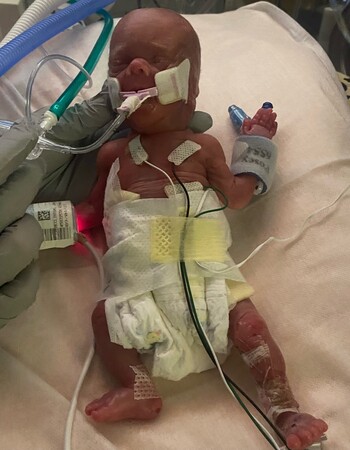
Family Health
TIPS program helps Methodist NICU babies maximize their development
Published: Nov. 19, 2024
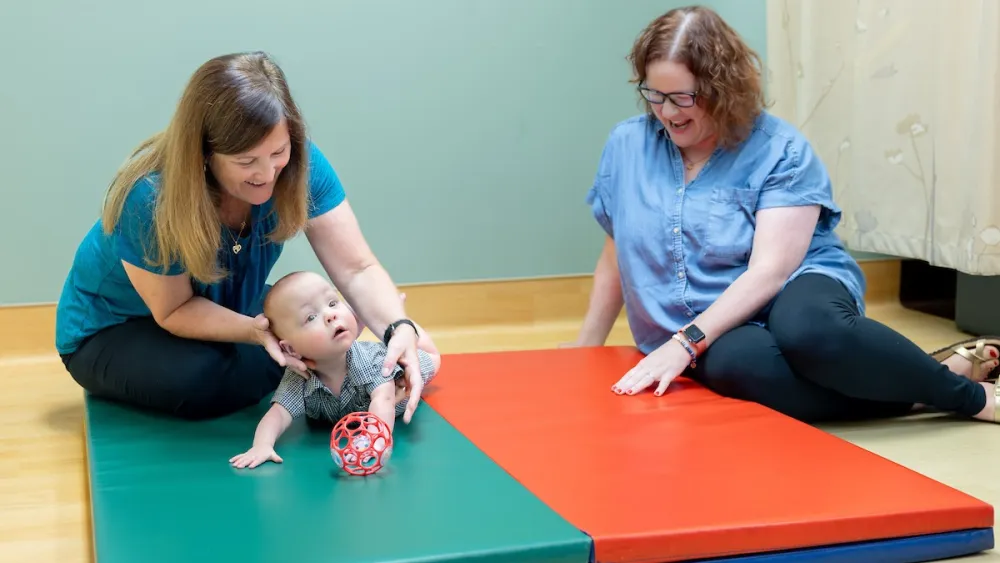

A few days after turning 10 months old in July, John Bolen McClinton – Buddy for short – returned to the place he was born for the next step in his developmental journey.
Born at 24 weeks at Methodist Women’s Hospital on Labor Day 2023, Buddy weighed 14.1 ounces and measured 9.65 inches long. When he was discharged from the hospital’s Neonatal Intensive Care Unit (NICU) on Dec. 29, six days after his due date, he was the smallest baby born at Women’s Hospital to survive.
Since their son’s birth, Ashley and John McClinton of Lincoln have called him a miracle. But premature babies often face a variety of developmental challenges. Since going home, Buddy has already been undergoing physical and occupational therapy at the suggestion of his pediatrician.
On this July day, the McClintons were using another resource: Developmental TIPS (Tracking Infant Progress Statewide), a program that collaborates with hospitals across Nebraska to provide developmental follow-up for babies who spent their early days in a NICU.
“We just look at it as another resource to help him catch up,” Ashley McClinton said. “I jokingly say he was four months undercooked, so we have to do everything we can to provide him the resources to live a normal life.”
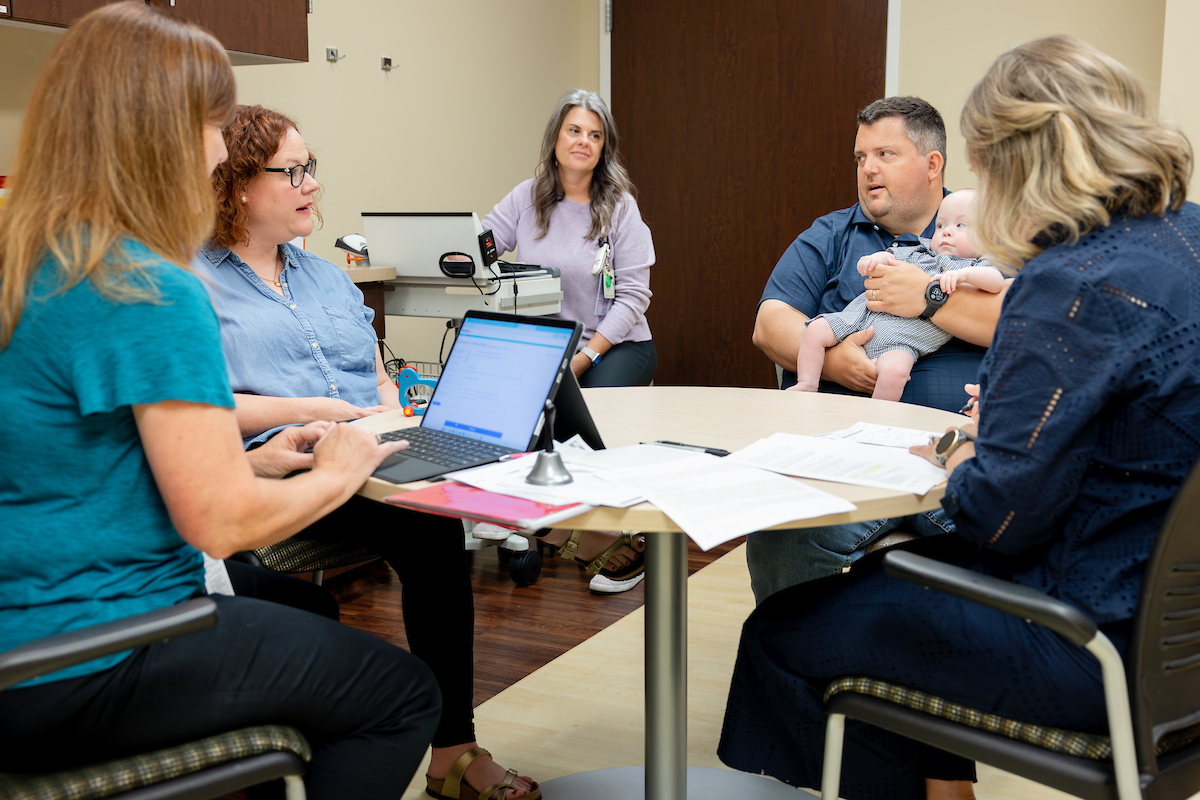
Helping thousands of children
TIPS, which is coordinated by the University of Nebraska Medical Center’s Munroe-Meyer Institute, is funded by grants from the Nebraska Department of Health and Human Services and Nebraska Department of Education. The voluntary program is free for families and aims to assess babies who spent 72 hours or more in a NICU at one of 12 enrolling hospitals, including Women’s Hospital. When necessary, TIPS connects those families with the Nebraska Early Development Network (EDN) for resources to help address developmental delays.
Children like Buddy who faced a host of medical complexities at birth are scheduled for their first TIPS assessment before ever leaving the hospital. Families of children with fewer comorbidities receive a questionnaire after going home to help identify the risk for delays. Around 6 months after their due dates, children who are at risk can attend their first assessment at one of five clinics in the state. During the assessment, a medical provider and a developmental specialist present prompts that aid in evaluating problem-solving, play skills and fine and gross motor skills.
TIPS has additional assessments at its clinics for children around ages 16 months and 2 years. Depending on any of the assessments’ findings, a referral to the EDN for early intervention can follow. For many children 3 and younger, that can mean free physical, occupational or speech therapy through their local public school district or educational service unit.
Since it began in 2000, TIPS has enrolled over 38,000 children, with over 1,800 enrolled last year.
“We know that the earlier we start working with children and addressing any needs they have, the more likely they’re going to go to school ready to learn,” said TIPS co-director Kerry Miller, PhD. “The importance of the Early Development Network in our state is that the system coaches families on how they can support their children’s development. It’s really impactful that they can go in and work with the family on what they can do with their child every day within their family routines and activities so we can maximize their development.”

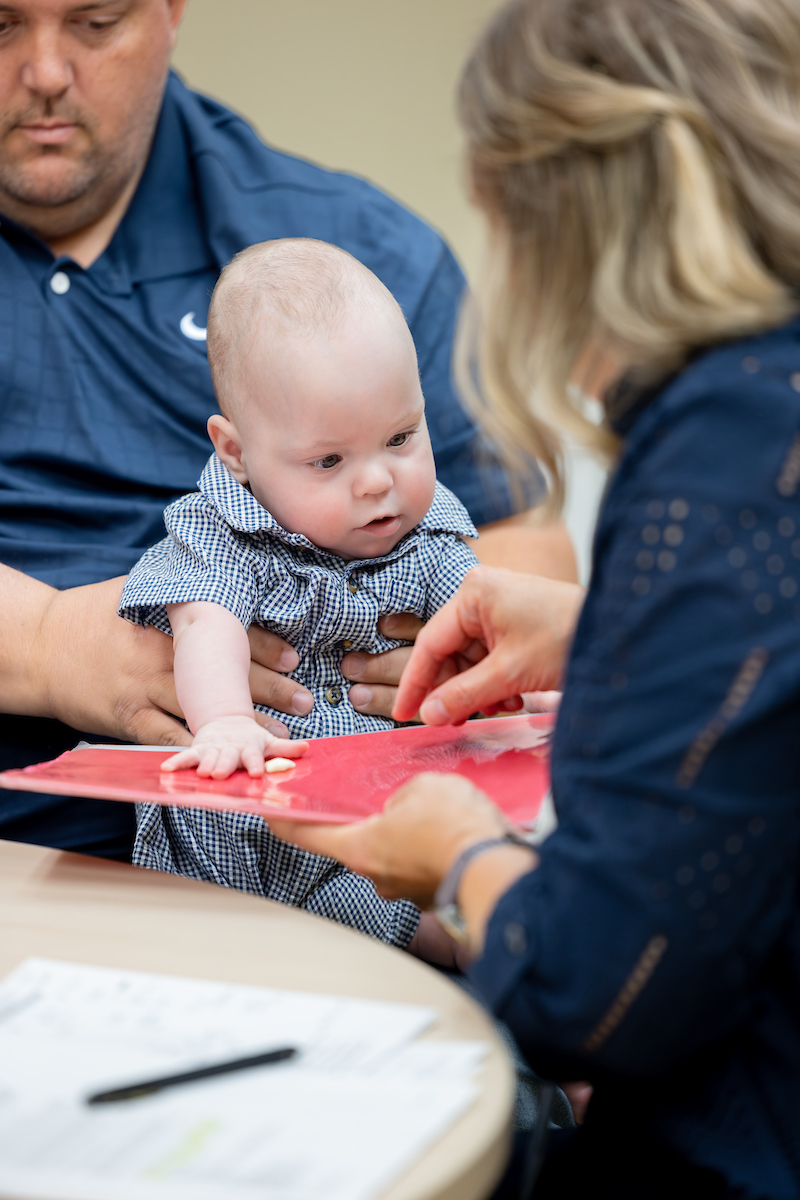
Assessing development
Buddy’s 6-month TIPS appointment was as much of a homecoming as it was an assessment.
With a TIPS clinic on-site for a child’s first assessment, Methodist Women’s Hospital is a familiar and comfortable location for families like the McClintons who spent time in the region’s busiest NICU.
“It’s a really nice way to come full circle for these kiddos,” said Sheri Kimmey, MSN, RNC-NIC, ELBW, NDCS, a neonatal developmental care specialist at Women’s Hospital. “We work so hard when we’re here to help them have the best possible outcome they can have. But then we’re going to bring you back and make sure that all of your needs are being met.”
The McClintons grew close to Kimmey while Buddy was in the Women’s Hospital NICU, so hugs and a few minutes of reminiscing were the first order of business during his TIPS appointment in July.
Buddy had come a long way since his birth and discharge, weighing in at 14 pounds, 9 ounces and measuring 26 inches long as his appointment began. Now he’d take a variety of standardized development tests to gauge how his neurodevelopment had progressed.
“It looks like we’re playing, but we’re looking for cognition and problem-solving when we’re interacting with them,” Dr. Miller said.
Buddy’s assessment began on a play mat with Munroe-Meyer physical therapist Amy Beyersdorf, MPT, PCS, who helped him stand, placed him on his stomach, gently twisted his body while holding him and placed a toy in his hand – all to see how he’d respond.
Beyersdorf and Paige Hardy, DNP, APRN, NNP-BC, TIPS program co-director and a neonatal nurse practitioner with Munroe-Meyer and Children’s Nebraska, then gave Buddy a variety of challenges while he alternated between his mom’s and dad’s laps.
For example, they crumpled a piece of paper to see how he’d react to the sound, then handed it to him to see what he’d do. They showed him a mirror to see how he’d react to his reflection. Beyersdorf patted her hands on a table, hoping to coax Buddy into imitating her. Later she held a ring hanging from a string in front of him, then placed it on the table.
“What we want to see is if he explores that string and can eventually grab it,” Beyersdorf said.
“It’s really cause-and-effect skills,” Hardy added.
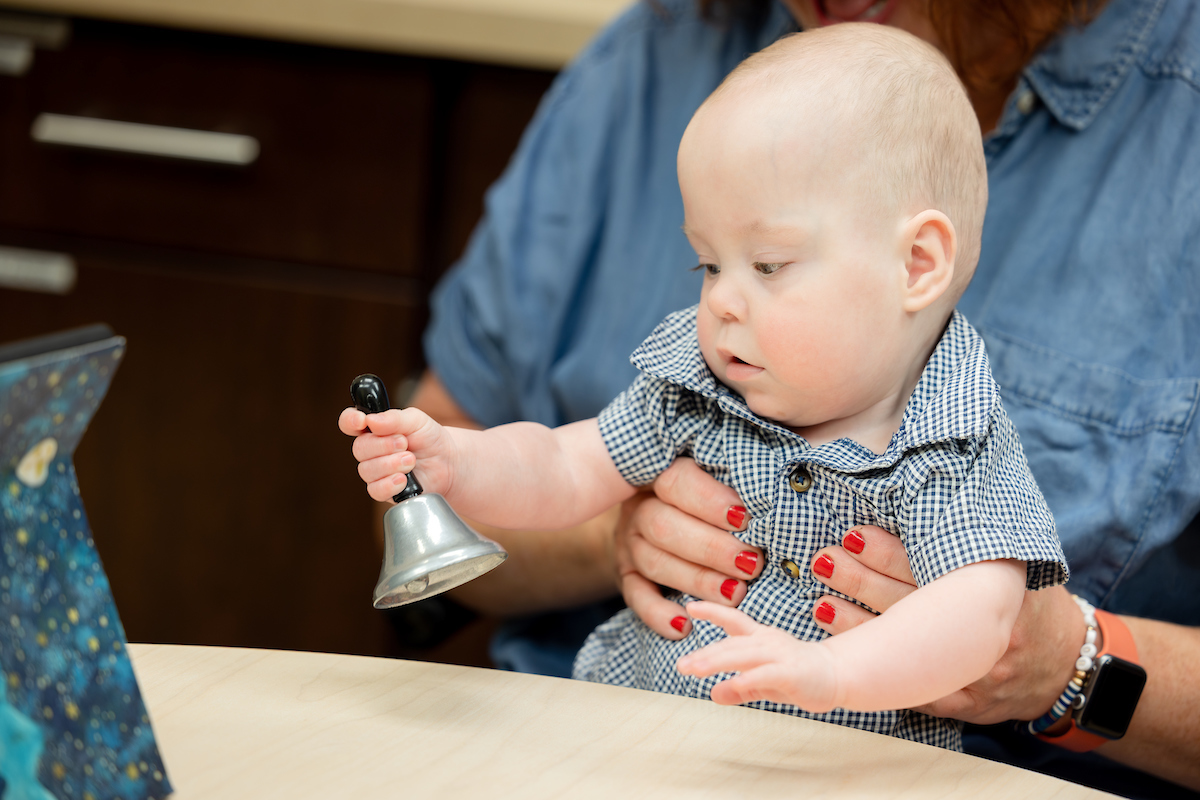
On and on, the pair gave Buddy tasks that kept him engaged while subtly assessing his abilities. Meanwhile, they asked Ashley and John McClinton questions about their son’s behavior at home.
Is he expressive when he babbles?
“Lots of inflection,” Mom answered.
Does he reach for a bottle when he’s hungry? Yes, she said.
“Those are gestures. That’s communication,” Beyersdorf said. “That’s excellent.”
As Buddy began to tire from all the activity, Beyersdorf and Hardy shifted their focus to his medical history and his parents – including postpartum depression screenings for both.
“We know that healthy babies really start with healthy families,” Hardy said,” so that’s why we do it.”
‘Confidence booster’
Buddy’s first TIPS assessment was overwhelmingly positive. It’s important to note that since he was born over three months early, his behavior was measured against benchmarks for his corrected age – about 6 months old.
“He’s demonstrating some really nice foundational skills, which we know is because of his parents,” Hardy said.
She and Beyersdorf needed to review the results further, but they said Buddy was likely to be considered low-risk for developmental issues. Yet, by virtue of how early he was born, he would probably still be eligible for early intervention.
“If nothing else, you can do the evaluation (with EDN) and see how it goes,” Beyersdorf said. “If you like it, try it. But you’re driving the bus, and you can always get off the bus.”
When asked if they were interested in having Buddy referred, Ashley McClinton wasted no time.
“Absolutely.”
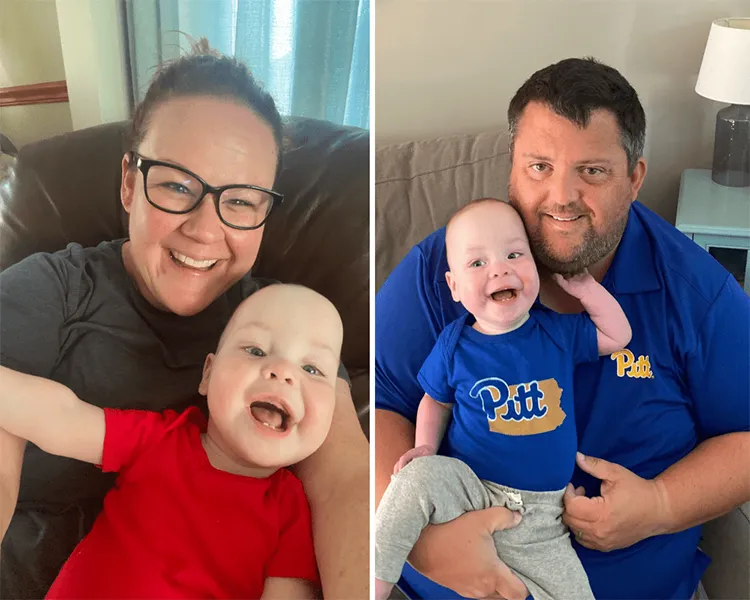
In the months since, the McClintons have started the process to have Buddy evaluated by EDN for early intervention. If all goes as planned, his mother said, he could begin speech therapy in early 2025 to assist with his communication and eating.
Regardless of how Buddy’s developmental journey looks going forward, the McClintons are grateful for the support the TIPS program offers to families like theirs across Nebraska.
“It was a huge confidence booster for John and me as parents,” Ashley McClinton said. “Not only did Buddy do well, but we were given so much positive reinforcement that he is so loved. We are so engaged with him, and it makes you realize that you are doing enough.”
TIPS appointment photos by Nick Bohan
More Resources
- Read more from the fall/winter 2024 issue of The Meaning of Care Magazine.
- Learn more about NICU care at Methodist.


